
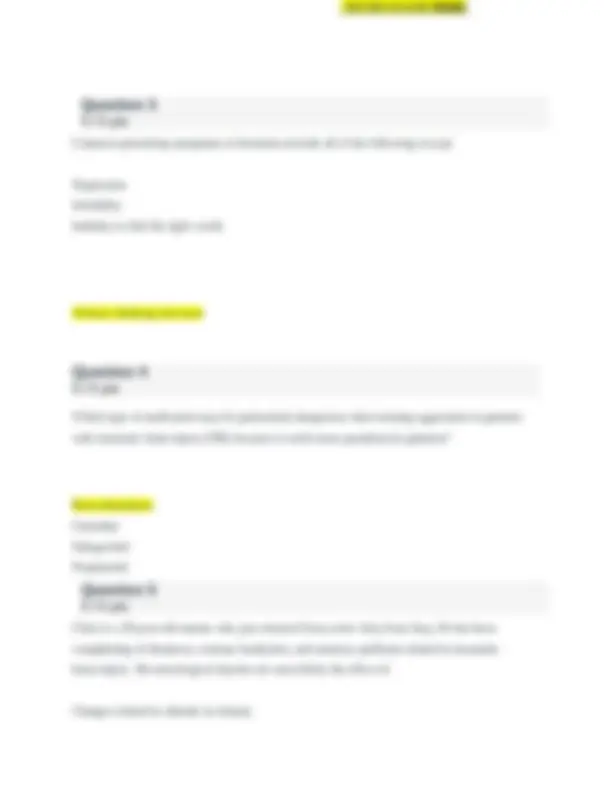
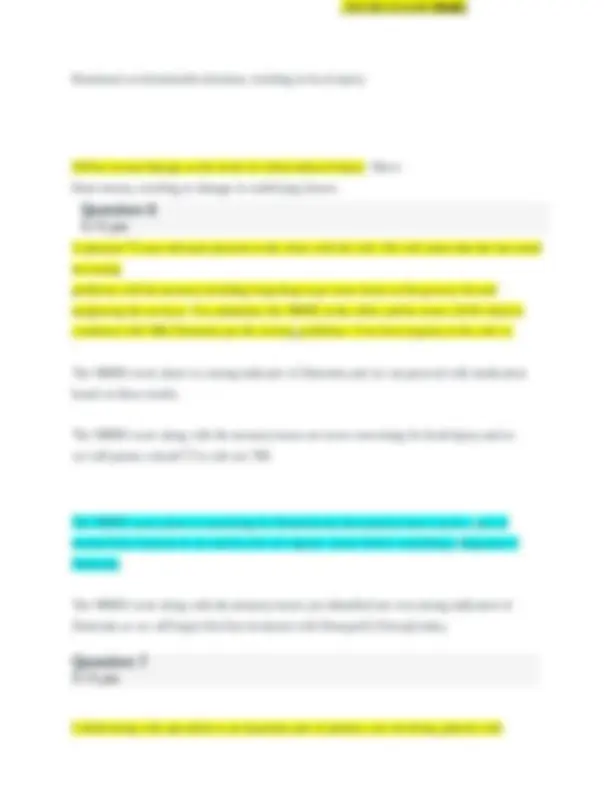
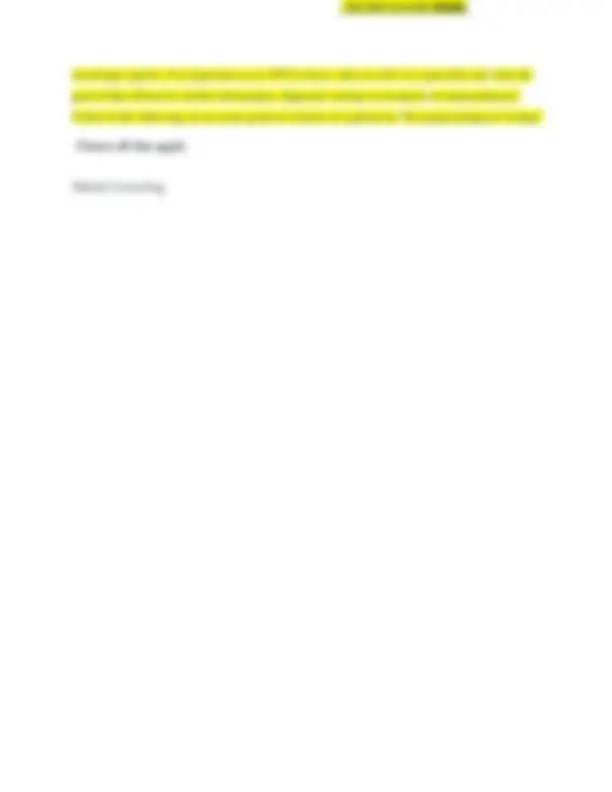
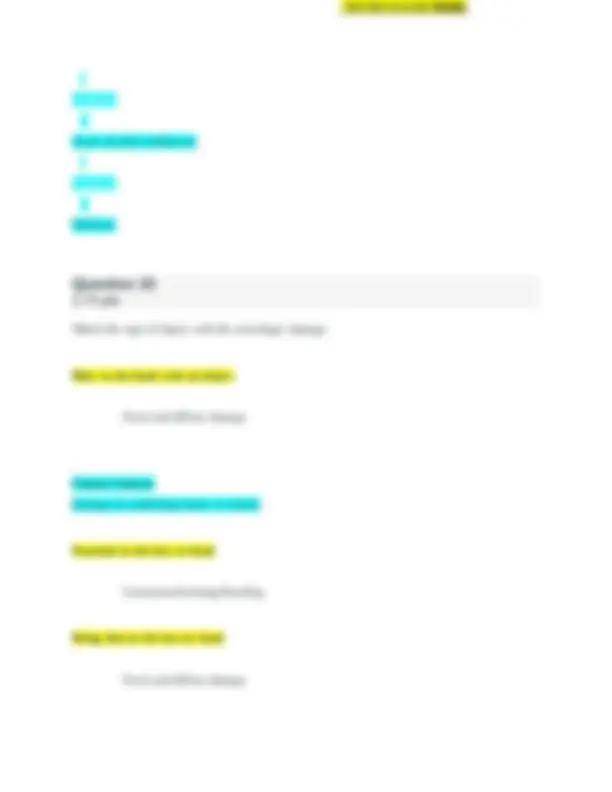
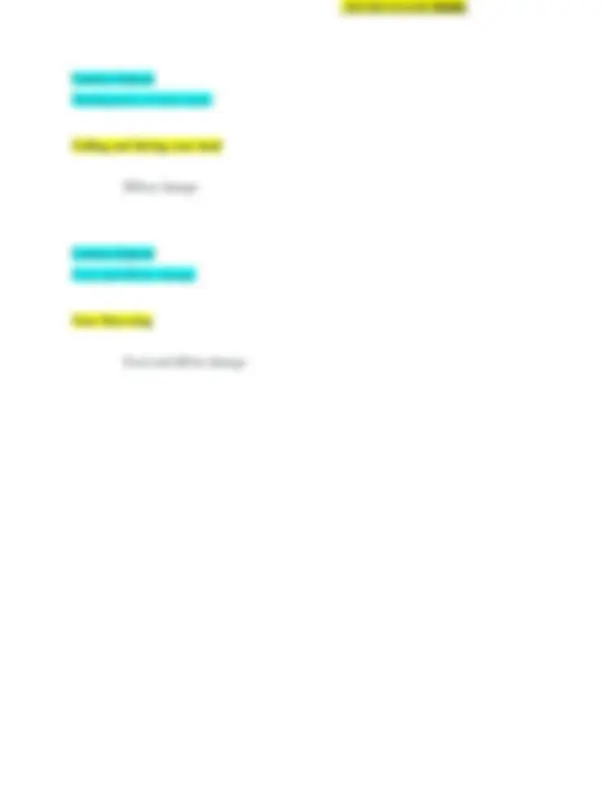



Study with the several resources on Docsity

Earn points by helping other students or get them with a premium plan


Prepare for your exams
Study with the several resources on Docsity

Earn points to download
Earn points by helping other students or get them with a premium plan
Community
Ask the community for help and clear up your study doubts
Discover the best universities in your country according to Docsity users
Free resources
Download our free guides on studying techniques, anxiety management strategies, and thesis advice from Docsity tutors
A series of neuro exam questions related to identifying potential causes of delirium in the elderly and neurological injuries in patients with traumatic brain injury. Topics covered include dehydration, medication effects, sepsis, metabolic imbalance, personality changes, common presenting symptoms of dementia, and medication choices for treating aggression in tbi patients. The document also covers chris's case of traumatic brain injury and the best response to a patient with mild dementia.
Typology: Exams
1 / 10

This page cannot be seen from the preview
Don't miss anything!







Which of the following are potential causes of delirium in the elderly? Mark all that apply. Dehydration Correct! Medication Effects Correct! Sepsis Correct! Metabolic imbalance
Personality changes in patients with Traumatic Brain Injury include all of the following except: Correct Answer Hypervigilance Impaired Social Judgment Apathy Impulsivity
Rotational acceleration/deceleration, resulting in focal injury. Diffuse axonal damage as the result of a blast-induced injury. Direct blunt trauma, resulting in damage to underlying tissues.
A pleasant 73-year-old male presents to the clinic with his wife. His wife states that she has noted increasing problems with his memory including forgetting to get some items on his grocery list and misplacing his car keys. You administer the MMSE in the office and he scores 24/30 which is consistent with Mild Dementia per the scoring guidelines. Your best response to his wife is: The MMSE score alone is a strong indicator of Dementia and we can proceed with medication based on these results. The MMSE score along with the memory issues are more concerning for head injury and so we will pursue a head CT to rule out TBI. The MMSE score alone is concerning for Dementia but the memory issues can be a part of normal brain function so we need to rule out organic causes before concluding a diagnosis of Dementia. The MMSE score along with the memory issues you identified are very strong indicators of Dementia so we will begin first line treatment with Donepezil (Aricept) today. Collaborating with specialists is an important part of primary care involving patients with
neurologic injuries. It is important as an APN to know when to refer to a specialist and what the goal of that referral is: further information, diagnostic testing or treatment recommendations? Which of the following are accurate goals of referral of a patient for Neuropsychological Testing? Choose all that apply: Marital Counseling
Benzodiazepines are appropriate for which of the following disorders? (Choose all that apply) Insomnia Correct Answer Mood Disorders
Correct! Acute alcohol withdrawal Correct! Delirium Match the type of Injury with the neurologic damage. Blow to the head with an object Focal and diffuse damage Correct Answer Damage to underlying tissue or vessels Punched in the face or head Contusions/bruising/bleeding Being shot in the face or head Focal and diffuse damage
Correct Answer Diffuse damage